Sharon Livermore
Five of the biggest threats to life in the ocean
Five of the biggest threats to life in the ocean
Approximately 71% of the Earth’s surface is covered by the ocean, which is—perhaps unsurprisingly given its size—home to over 90% of the planet’s living species, from plants and fish to reptiles and mammals.
The ocean also plays a critical ecological role. It supports aquatic phytoplankton, which produce an estimated 50% of the oxygen that we breathe and act as one of the largest carbon sinks on the planet, sequestering vast amounts of atmospheric CO2 and helping to mitigate the effects of climate change.
However, despite the ocean playing such a significant role in the health of the planet and being home to a plethora of animal and plant species, it is under constant threat due to a variety of human activities.
That’s why, at IFAW, we work hard to protect marine habitats and the species that live in them. As part of our marine conservation work, we’re campaigning to reduce shipping speeds and reroute shipping lanes. We also rescue marine animals like dolphins that have fallen victim to the threats listed below.
In this blog, we look at five of the biggest threats to life in our ocean and explore the efforts being made to protect one of our most valuable resources.
1. Ocean noise
Often overlooked because it can’t be seen, ocean noise is a significant threat to a number of marine species. Animals like whales and dolphins that hunt and communicate using sound are severely impacted by excessive noise caused by shipping activity, military sonar, and seismic exploration by oil and gas industries. This noise can disturb and disorient animals, preventing them from finding food, meeting a mate, and detecting predators—ultimately threatening their very survival.
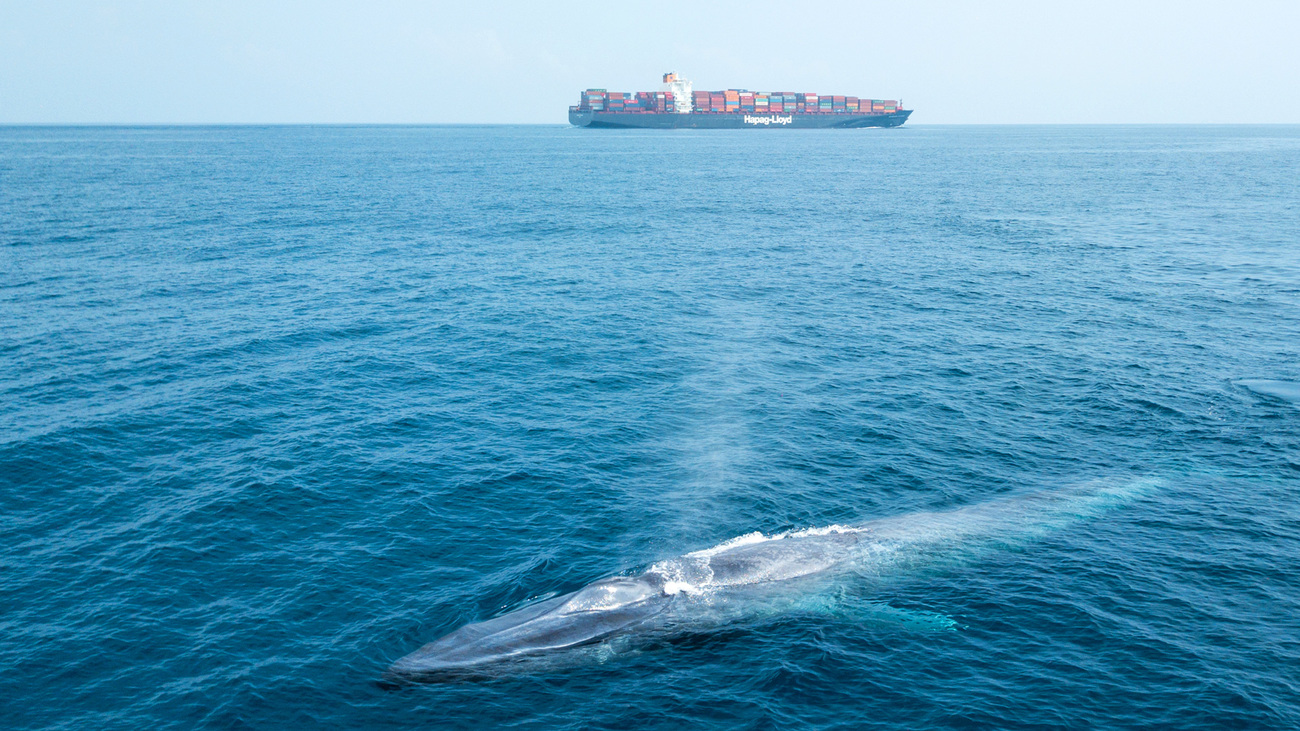
To reduce ocean noise pollution from shipping, the simplest and most immediately effective solution is to decrease vessel speeds.
IFAW has been working closely with shipping companies, ports, and through the International Maritime Organization’s Marine Environment Protection Committee to reduce ocean noise. We’ve also organised roundtable events with shipping industry representatives and policymakers to discuss ocean noise, collisions, and potential solutions.
We’re pleased to report that, after years of intense lobbying by IFAW, the European Commission set binding limits for underwater noise pollution in 2024. Now, EU Member States must abide by these limits to regulate ship-generated noise and plan marine activities like oil and gas exploration.
We also continue to lobby on this issue through our Blue Speeds campaign. If we reduce vessel speeds by just 10% globally, we can reduce the risk of whale collisions by about 50%, reduce greenhouse gas emissions from shipping by up to 13%, and reduce underwater noise by around 40%.
2. Vessel strikes
Another threat linked to shipping is collisions with marine wildlife, known as ‘vessel strikes’. These are exactly what they sound like: Large and small marine vessels, from cargo ships to recreational boats, collide with marine animals—often whales, who swim close to or at the ocean’s surface. These collisions typically result in devastating injuries and usually death. Research indicates that for every whale we see that has been fatally injured by a vessel strike, around 20 whales with the same fate go undetected.
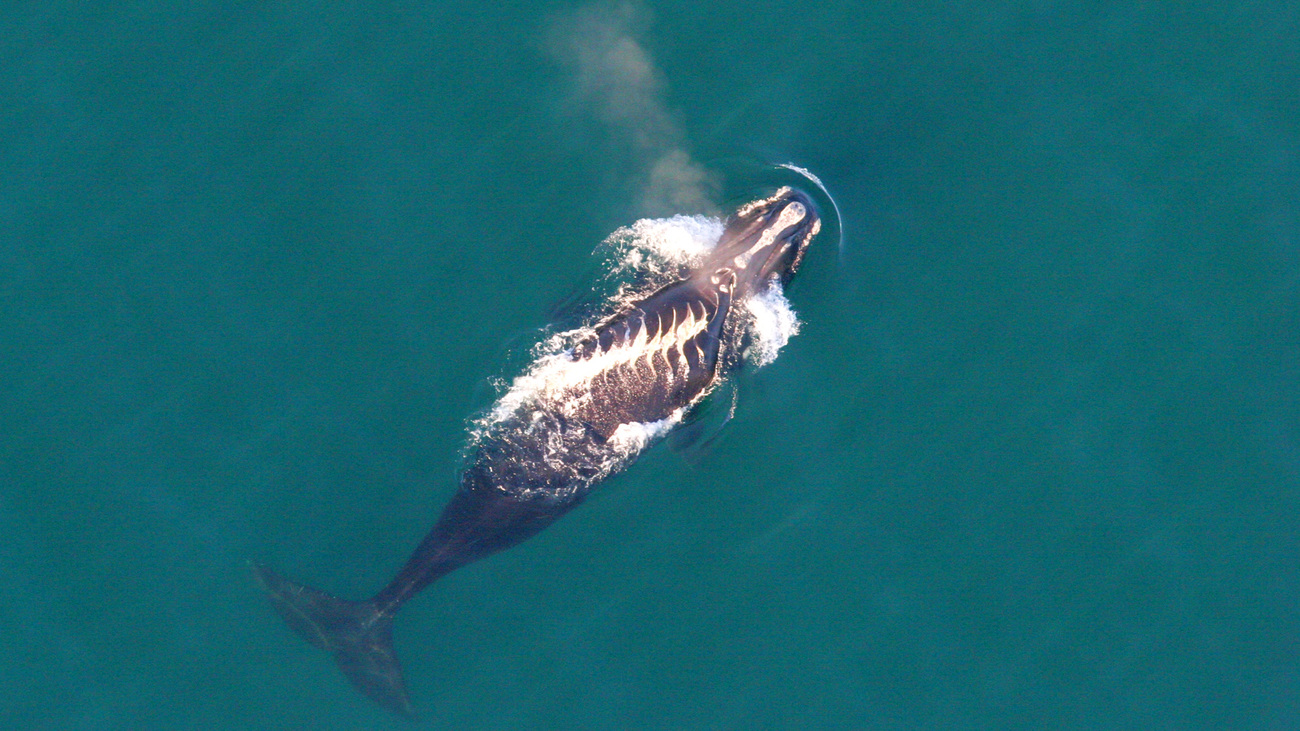
Vessel strikes have contributed to the decline of several whale populations, including fin whales and North Atlantic right whales. As of 2025, there are only about 370 North Atlantic right whales left in the world.
While more work needs to be done to reduce vessel speeds in the Atlantic Ocean and beyond, we’re experiencing success in other ways. IFAW has launched a new version of our innovative and effective citizen science technology—the Whale Alert mobile app. Using public whale sightings, acoustic detections, and aerial surveys, the app gives mariners whale warnings and speed recommendations to help avoid collisions.
3. Climate change
The increase in global temperatures seen with climate change has—and continues to have—devastating effects on the ocean. The surface of the ocean is warming four times faster than it was 40 years ago, and we experienced record-breaking ocean temperatures in both 2023 and 2024.
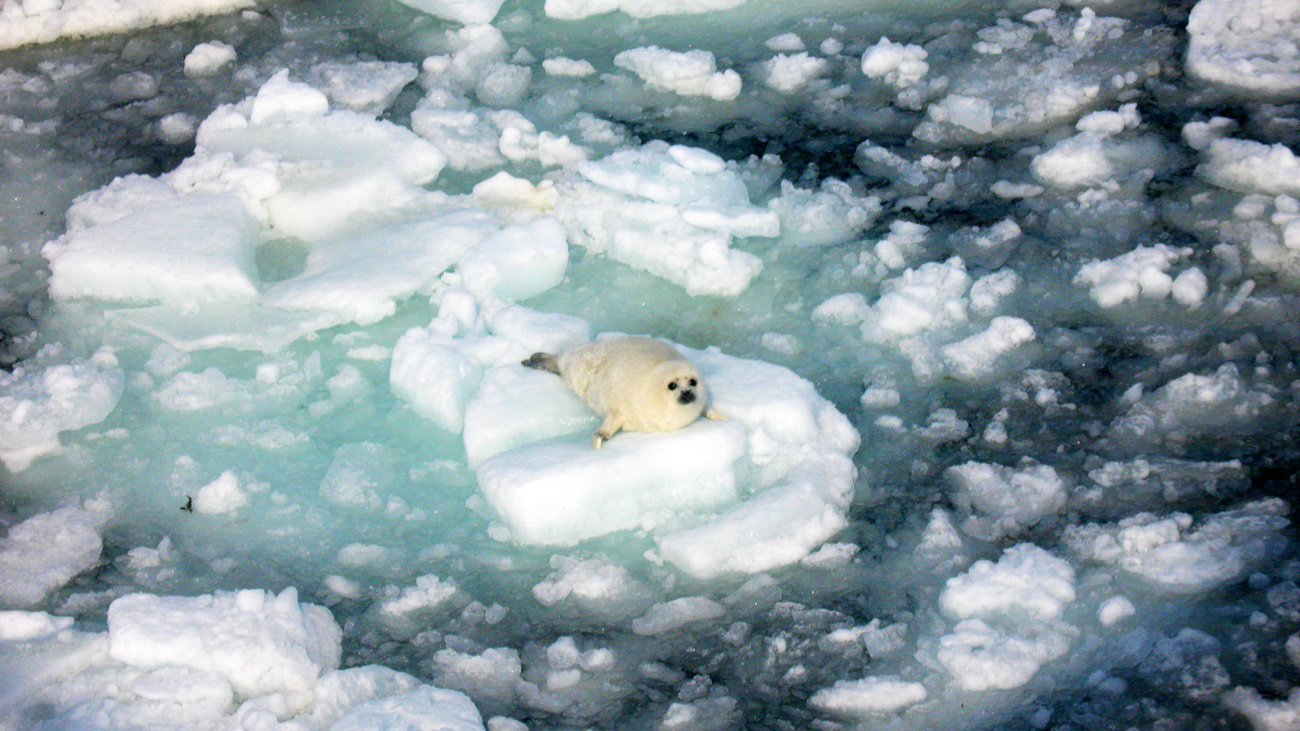
Warming temperatures have led to coral bleaching, with another major global coral bleaching event confirmed by the National Oceanic and Atmospheric Administration (NOAA) in 2024. Global warming is causing sea levels to rise around the world, which is damaging coastal ecosystems, and increased carbon in the atmosphere is causing ocean acidification, which has dire consequences for marine species like coral, shellfish, and plankton.
Embracing nature-based solutions to climate change is crucial for making equitable, sustainable, and long-term climate interventions. When we centre animals in our climate efforts, taking advantage of their natural ecological functions, we can protect their ecosystems from further harm.
We also know that marine biodiversity plays an important role in fighting climate change. When we support a healthy ocean and protect the interconnected web of ocean life, the ocean repays us by absorbing and capturing carbon dioxide, producing oxygen, and regulating the planet’s temperature.
It is also important to work with local communities and stakeholders to establish equitably-led and sustainable climate projects in their local ecosystems. Education is key on both sides—teaching people about the effects of climate change and how to be more climate-conscious, as well as learning from local experts to help make a real difference in their communities.
Wildlife conservation and community engagement are just some of the ways IFAW works to combat climate change. But there are lots of small things we can all do, day to day, to make our lives more sustainable. We can cycle or walk instead of driving, reduce our disposable plastic use, shop second-hand, and be mindful of our water usage. Climate-conscious changes like these benefit our planet and our oceans.
4. Entanglement in fishing gear
Marine animals—including whales, dolphins, seals, turtles, and seabirds—often become caught and trapped in nets and lines used by commercial fisheries. These entanglements can inhibit marine animals from moving freely, preventing them from hunting, breathing, and eating normally. They can also cause severe injuries and death.
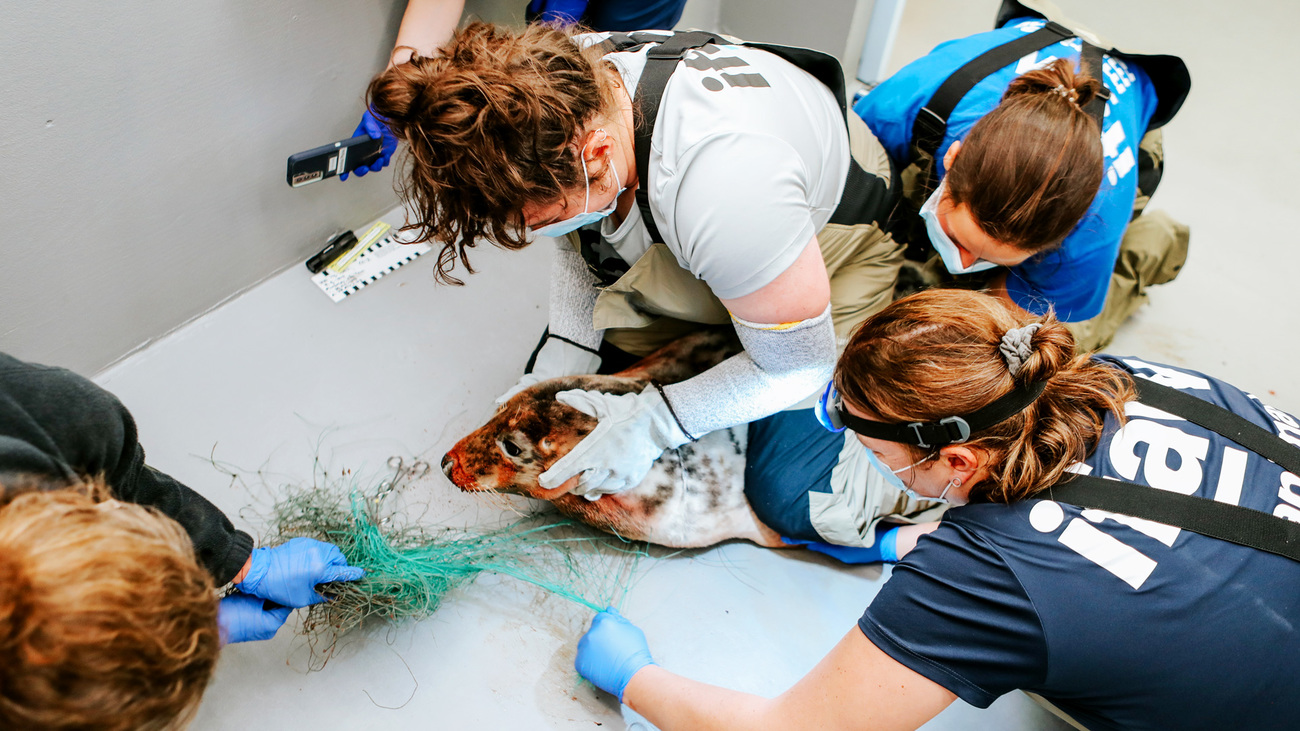
Entanglements are a huge problem. Experts recorded 34 whale entanglements off Australia’s east coast in 2024 but said they believe this was just ‘the tip of the iceberg’. It recently took rescuers four days to free a humpback whale from a mass of tangled fishing gear in Canada. And—already in 2025—two humpback whales have been freed from life-threatening entanglements off the coast of Maui, and two more off Scotland.
Not all marine mammals are so lucky. A North Atlantic right whale nicknamed Cottontail died after spending four months severely entangled in heavy fishing gear back in 2021.
To combat entanglement, IFAW has been raising public awareness, pushing for regulatory change, and promoting innovative solutions in the US and Canada to help protect the North Atlantic right whale and other marine animals.
Additionally, we have been working to introduce a new type of sedative that slows entangled whales down so our veterinary experts can disentangle them from nets. Using drones, we can estimate the size of whales and provide the proper dosage, making this method of disentanglement safer and more effective for both the whales and the rescuers. We’ve also developed safe and effective sedation techniques to save entangled seals.
5. Plastic debris
An estimated 1.7 million tons of plastic end up in our oceans each year. Our discarded bottles, plastic bags, and packaging are choking and entangling animals, or breaking up into tiny pieces that can be swallowed, releasing toxic chemicals along the way.
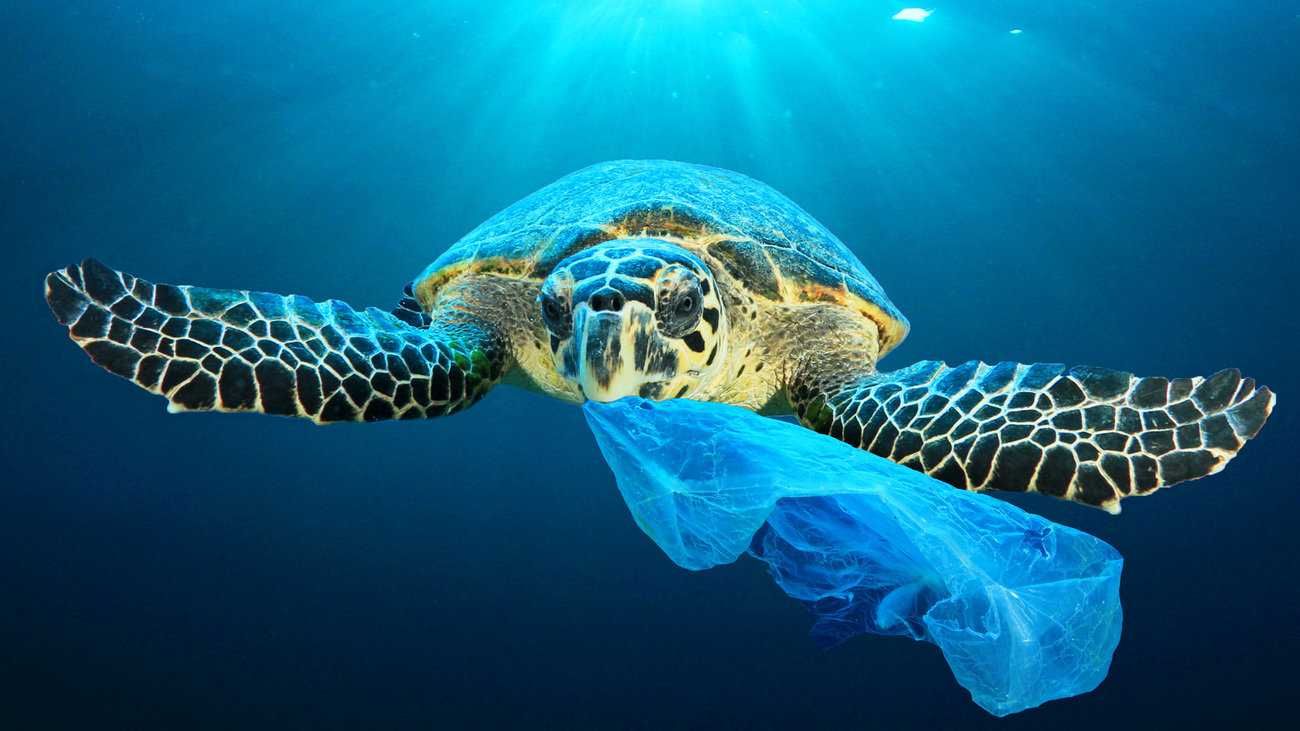
Marine animals regularly become tangled in plastic debris—as is often seen with sea turtles. They also choke on plastic, mistaking it for food. Smaller pieces of ocean plastic include microplastics, which are formed when larger pieces of plastic break down over time, and nurdles, the raw materials used in plastic product manufacturing.
These small pieces of plastic are consumed by small fish and species lower on the food chain. When these species are eaten by predators, toxic plastics are passed up the chain and amplified, threatening the entire marine ecosystem. Over 90% of seabirds are now thought to have plastic pieces in their stomachs, and plastic microfibers have been discovered in the stomachs of deep-sea fish.
There are many things we can do to help reduce the amount of plastic waste in our oceans. These include small-scale changes in our day-to-day lives, such as not using plastic bags or straws, as well as larger-scale initiatives with which we can engage.
The Flipflopi Project, which was awarded Innovator of the Year at IFAW’s 2024 Animal Action Awards, is an East African movement that works to end single-use plastics and ensure all other plastics become part of a circular economy. IFAW has recently partnered with Flipflopi to ensure our work in coastal Kenya supports their efforts to address the plastic crisis impacting the marine environment and species we are working to protect.
For more information about the work IFAW is doing to protect not only our oceans but the entire natural world, explore our projects.
Related content
Our work can’t get done without you. Please give what you can to help animals thrive.